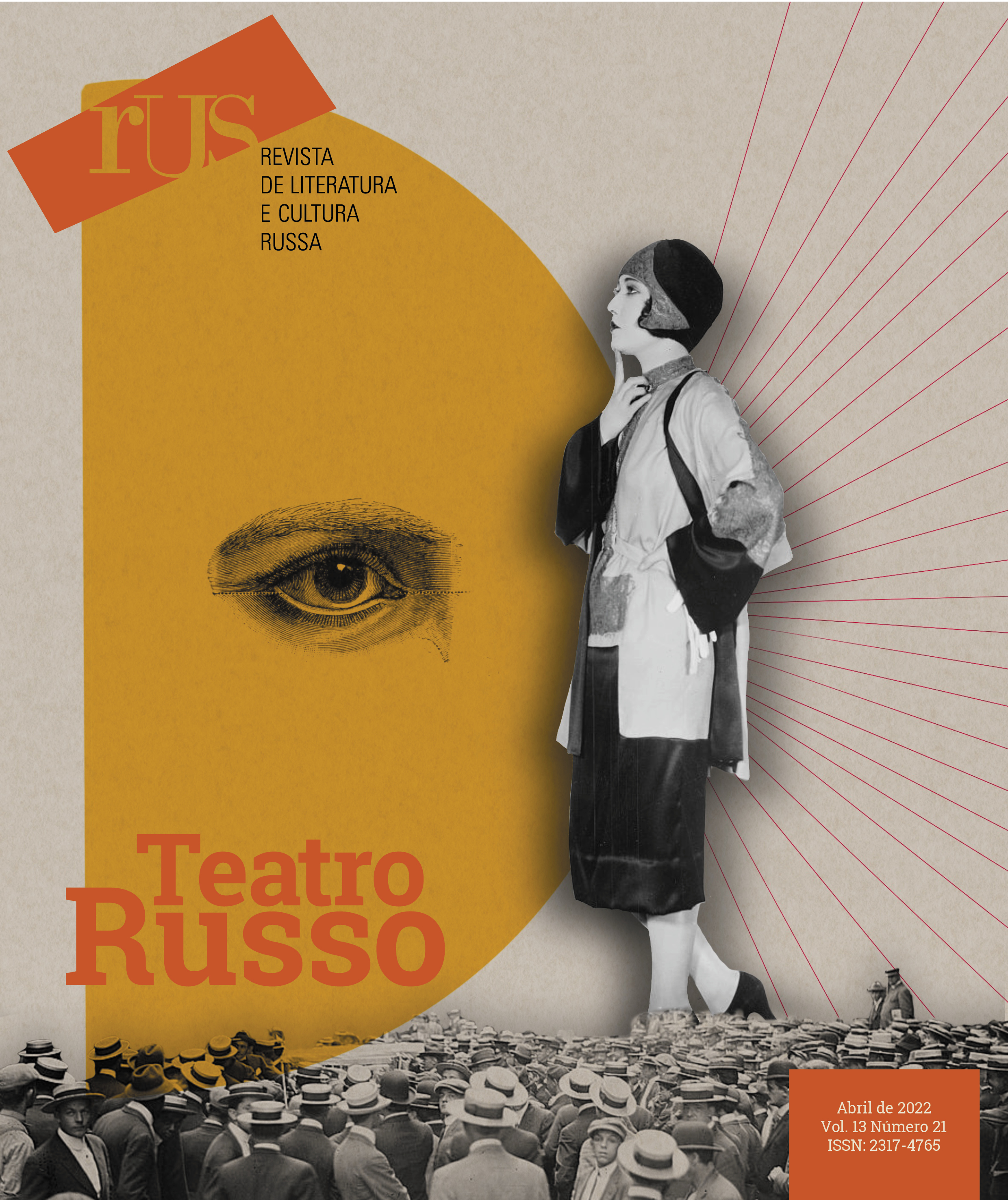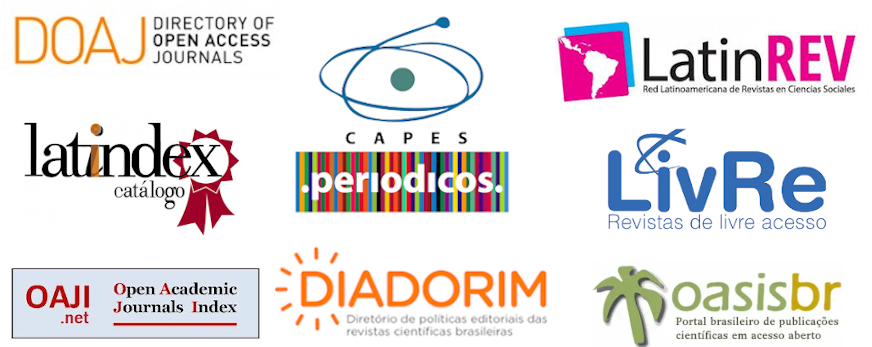“I like most of all my own name”: presentation and translation of excerpts of the play-poem Vladimir Mayakovsky. Tragedy (1913)
DOI:
https://doi.org/10.11606/issn.2317-4765.rus.2022.195408Keywords:
Russian Theatre, Vladimir Mayakovsky, Vladimir Mayakovsky. Tragedy., Poetic translationAbstract
We introduce and propose a poetic translation, from Russian to Portuguese, of excerpts from the play Vladimir Mayakovsky. Tragedy (1913), first V. Mayakovsky’s dramatic work. Initially, besides commenting on the context of conception, staging and reception of this play, we highlight some points of relation with other poet’s lyrical works published before the Russian Revolution. Besides being a dramatic work, the Tragedy can also be considered a long lyrical poem that launches the primordial cry of self-celebration of the I-poet, who is aware of his loneliness and puts himself as a prophet in sacrifice for all, position which has been reiterated in his later lyrical works.
Downloads
References
BOLOGNESI, Mario Fernando. Tragédia: uma alegoria da alienação. Trans/Form/Ação. Universidade Estadual Paulista, Departamento de Filosofia, v. 12, pp. 25-35, 1989. Disponível em: http://hdl.handle.net/11449/10668
CAVALIERE, Arlete. « Le Théâtre de Majakovskij : une subjectivité sur la scène des avant-gardes russes ». In : Modernités russes, v. 16. Lyon : Centre d’Études Slaves André Lirondelle, Université Jean Moulin Lyon 3, 2016.
Freud, Sigmund. O Mal-estar na civilização. São Paulo: Penguin Classics; Companhia das Letras, 2016.
Jakobson, Roman. Russie, folie, poésie. Paris: Éd. du Seuil, 1986.
Jakobson, Roman. A geração que esbanjou seus poetas. Tradução de Sonia Regina Martins Gonçalves. São Paulo: Cosac Naify, 2006.
Krutchônikh, Alekséi, “Konéts Maiakóvskogo” [O fim de Maiakóvski]. In: K istorii russkogo futurizma. Vozpominaniia i dokumenty. Moskva: Guileia, 2006.
Maiakóvski, Vladímir. Sobre Isto. Tradução de Letícia Mei. São Paulo: Editora 34, 2018.
Maiakóvski, Vladímir. Poèmes (1913-1917). Tradução e apresentação Claude Frioux. Paris: L’Harmattan, 2000.
Maiakóvski, Vladímir. “Vladimir Maiakóvski. Tragediia”. In: Sobraniie sotchinenii v vosmi tomakh. T. 1. Moskva: Pravda, 1968, pp. 36-55.
Pasternak, Boris. Il salvacondotto. In: Opere narrative, Milano, 1994.
Pomorska, Kristina. Formalismo e Futurismo. A Teoria Formalista Russa e seu Ambiente Poético. São Paulo: Perspectiva, 2010.
Ripellino, Angelo Maria. Maiakóvski e o teatro russo de vanguarda. São Paulo: Perspectiva, 1971.
Schnaiderman, Boris. A poética de Maiakóvski. São Paulo: Perspectiva, 1971.
TERIOKHINA, Vera. “Poema Vladimira Maiakovskogo Liubliu i otcherk Ia Sam: v poiskakh janra avtobiografii.” [Poema de Vladimir Maiakóvski Amo e ensaio Eu mesmo: em busca do gênero autobiográfico]. In : Modernités russes. V. 16. Lyon : Centre d’Études Slaves André Lirondelle, Université Jean Moulin Lyon 3, 2016.
Tsvetáeva, Marina. Le cahier rouge. Tradução e notas Caroline Bérenger e Véronique Lossky. Paris: Éditions des Syrtes, 2011.
Whitman, Walt. “Canção de mim mesmo”. In: Folhas de relva. Livro 25. Edição e tradução de Gentil Saraiva Júnior, 2013, edição Kindle, 1ª edição.
Whitman, Walt. “Song of Myself”. In: The Complete Poems of Walt Whitman. Hertfordshire: Wordsworth, 2006.
Downloads
Published
Issue
Section
License
Copyright (c) 2022 Letícia Mei

This work is licensed under a Creative Commons Attribution-NonCommercial-ShareAlike 4.0 International License.
Authors who publish in RUS agree to the following terms:
a. Authors retain copyright and grant the journal right of first publication with the work simultaneously licensed under a Creative Commons Attribution 4.0 International License (CC BY-NC-SA 4.0) that allows others to share the work with an acknowledgement of the work’s authorship and initial publication in this journal.
b. Authors are able to enter into separate, additional contractual arrangements for the non-exclusive distribution of the journal’s published version of the work (e.g., post it to an institutional repository or publish it in a book), with an acknowledgement of its initial publication in this journal.
c. Authors are permitted and encouraged to post their work online (e.g., in institutional repositories or on their website) prior to and during the submission process, as it can lead to productive exchanges, as well as earlier and greater citation of published work (See The Effect of Open Access).





